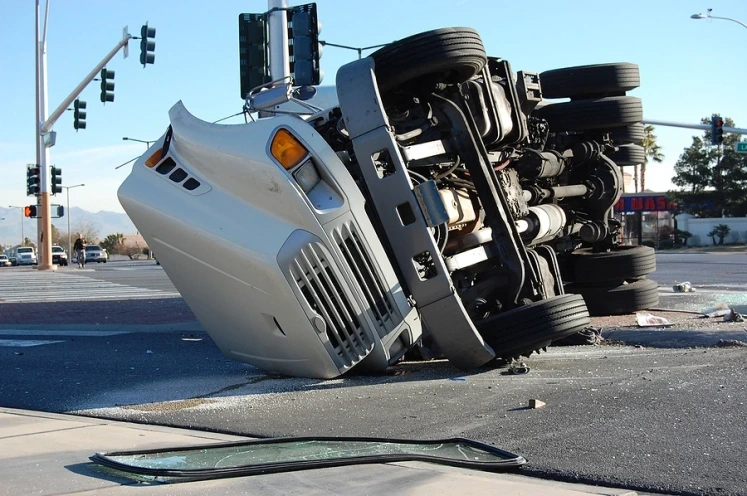Truck Accident Lawyer Maitland

Truck accidents can result in catastrophic injuries and complex legal claims involving multiple parties. If you were injured in a truck accident in Maitland, having the right legal support is crucial. Weston & Pape is ready to help you navigate the legal process and fight for the compensation you deserve. Contact us today at 561-821-3898 to schedule a free consultation with a truck accident lawyer you can count on.
Understanding Vicarious Liability in Truck Accident Cases
In truck accident cases, establishing who is responsible for an accident is often complex. Unlike passenger vehicle accidents, where liability typically falls on the driver, truck accidents may involve additional parties, such as trucking companies, cargo loaders, and maintenance providers. One of the key legal concepts in these cases is vicarious liability, which holds employers accountable for the actions of their employees under certain conditions.
Understanding how vicarious liability works in the context of truck accidents can significantly impact your ability to pursue a successful claim. If you’ve been injured in a truck accident, understanding this legal principle can help you determine who to hold responsible and how to proceed with your case.
What Is Vicarious Liability?
Vicarious liability is a legal doctrine that holds an employer responsible for the actions of its employees while those employees are performing tasks within the scope of their employment. Essentially, this means that if a truck driver causes an accident while on the job, their employer (often the trucking company) may also be held liable for the accident. The idea behind vicarious liability is that employers have control over their employees and should ensure that they are acting within the scope of their duties safely.
In truck accident cases, vicarious liability often comes into play when the at-fault truck driver was working at the time of the crash. If the driver was driving as part of their job—whether delivering cargo or driving from one location to another—the trucking company may be liable for the accident, even if they did not directly cause it.
How Vicarious Liability Works in Trucking Accidents
In a typical trucking accident claim, the driver may be personally liable for their actions. However, if the driver was employed by a company, the company can also be held liable through vicarious liability. To establish vicarious liability, a few key factors must be considered:
- The Driver Was Acting Within the Scope of Employment
This is perhaps the most crucial factor in determining whether vicarious liability applies. If the truck driver was acting within the scope of their employment at the time of the accident, the employer could be held liable. This means the driver must have been performing duties related to their job at the time of the incident, such as making deliveries, transporting cargo, or traveling to a scheduled work site.
For example, if the driver was on a delivery route and caused an accident, the trucking company can be held vicariously liable. However, if the driver was off the clock and driving for personal reasons, the trucking company may not be held accountable. - Employer Control Over the Driver’s Actions
Vicarious liability also hinges on the employer’s level of control over the driver’s actions. In most truck accident cases, trucking companies set schedules, dictate routes, and provide training for their drivers. The level of control the company exercises over its drivers can increase the likelihood of vicarious liability being applied. For instance, if the driver was using company-owned equipment or was expected to adhere to company policies while driving, it is more likely that the employer will be held liable. - The Employee Was Performing Their Job Responsibilities
It’s essential that the truck driver was carrying out their job duties at the time of the accident. If the driver was engaged in a task that was within the normal course of employment, such as driving a commercial vehicle for work purposes, the employer will typically bear the responsibility. However, if the driver was using the truck for personal reasons, such as driving after hours or during lunch breaks, this could complicate the issue of vicarious liability.
Exceptions to Vicarious Liability in Trucking Accidents
While vicarious liability generally applies in cases where an employee causes an accident within the scope of their employment, there are certain exceptions where this may not be the case. Some of these include:
- Independent Contractors
If the truck driver is classified as an independent contractor rather than an employee, vicarious liability may not apply. Independent contractors are typically responsible for their own actions. However, many truck drivers work as employees, not contractors, especially when they are driving for a large trucking company. It’s important to clarify whether the driver is an independent contractor or an employee to determine who is ultimately responsible for the accident. - Intentional Acts or Personal Use
Vicarious liability generally does not apply if the employee’s actions were outside the scope of their employment or were intentional. For example, if the truck driver intentionally caused harm or was engaged in criminal activity, their employer may not be held responsible. Similarly, if the driver was using the truck for personal reasons unrelated to their employment, vicarious liability may not apply.
How Vicarious Liability Impacts Your Claim
Understanding vicarious liability in truck accident cases can significantly affect the outcome of your personal injury claim. If vicarious liability applies, you may have a better chance of receiving compensation for your injuries, as you can potentially pursue claims against both the truck driver and the trucking company.
Here’s how it impacts your case:
- Access to More Compensation
Trucking companies often have higher insurance coverage limits than individual drivers, which means you may have access to more compensation if the company is held liable. Pursuing a claim against both the driver and the company can provide more financial resources to cover medical bills, lost wages, pain and suffering, and other damages related to the accident. - Liability Determination
In truck accident claims, it can sometimes be difficult to determine fault. The driver may not be entirely responsible for the crash, and other factors, such as faulty equipment, road conditions, or improper cargo loading, could play a role. Vicarious liability makes it easier to hold the employer accountable if the driver’s actions were part of their job duties, even if the driver is not fully responsible. - Faster Resolution
Filing a claim against both the truck driver and the employer may expedite the resolution process. Insurance companies representing large trucking companies are usually well-prepared to handle claims efficiently, which can lead to a faster settlement than dealing with an individual driver’s insurance company.
How to Strengthen Your Claim
To effectively pursue a truck accident claim where vicarious liability may apply, it’s crucial to gather evidence and work with a personal injury attorney who has experience in handling these types of cases. Some of the steps you can take include:
- Obtain the truck driver’s employment details: Determine whether the driver is an employee or an independent contractor and whether they were performing job-related duties at the time of the accident.
- Investigate the trucking company’s role: Look into the trucking company’s safety records, vehicle maintenance logs, and compliance with industry regulations. A trucking company may be held liable if poor maintenance or inadequate training led to the accident.
- Document all evidence: Collect police reports, witness statements, medical records, and photographs of the scene to support your case. This documentation can help establish fault and liability.
Personal Injury Attorney for Truck Accident Cases in Maitland
Due to the size and weight of commercial trucks, collisions often lead to severe injuries and complicated legal cases. An experienced personal injury attorney can manage the legal process while you focus on healing. At Weston & Pape, we stand up for truck accident victims throughout Maitland. Contact us at 561-821-3898 to schedule your free consultation and learn how we can help.

 Call Us Today - It's Free
Call Us Today - It's Free